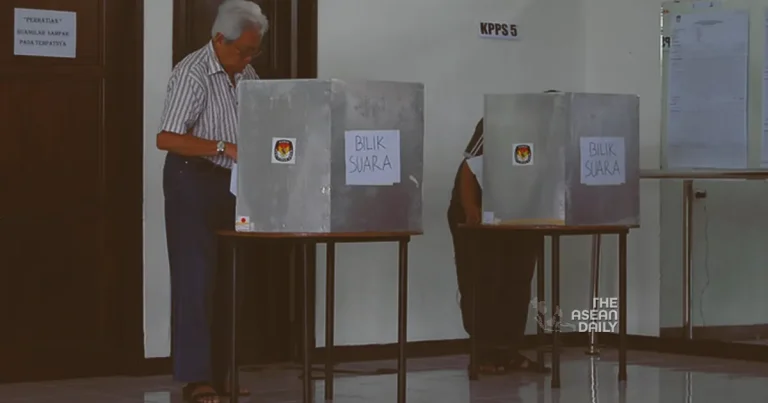14-2-2024 (JAKARTA) As Indonesians head to the polls today, the 2024 elections in Southeast Asia’s largest democracy have been marked by five major issues dominating the campaign headlines. With over 204.8 million eligible voters, the country is witnessing a three-horse race for the presidency, a rarity in the past 15 years. Defence Minister Prabowo Subianto, former Jakarta governor Anies Baswedan, and former Central Java governor Ganjar Pranowo are vying for the top position, while outgoing President Joko Widodo is unable to seek a third term due to constitutional limitations.
Voting began at 7 a.m. across three time zones and will conclude at 1 p.m. Quick-count results are expected shortly after the voting ends. Recent surveys indicate that Prabowo Subianto might secure over 50% of the vote, potentially winning the presidency outright in the first round. However, his rivals, Anies Baswedan and Ganjar Pranowo, remain strong contenders in the race.
Aside from the presidential election, more than 20,000 legislative posts are up for grabs, with approximately 250,000 candidates campaigning over a span of 75 days. The outcome of these elections will be closely watched, as it will determine who leads Southeast Asia’s largest economy.
Here are the five key issues that have shaped the Indonesian elections:
Dynastic Politics: While not on the ballot, President Joko Widodo has cast a long shadow over the elections. His older son, Gibran Rakabuming Raka, is the vice-presidential running mate of Prabowo Subianto. Although Gibran, at 36 years old, did not meet the minimum age requirement for presidential and vice-presidential candidates, the Constitutional Court, chaired by Widodo’s brother-in-law, ruled that individuals who have previously held regional posts could participate in the presidential election regardless of age. This latest example of dynastic politics has drawn criticism from academics and civil society groups, raising concerns about its impact on democracy. Despite this, Widodo maintains high public approval ratings.
Conflict of Interest and Unfair Campaigning: The Prabowo-Gibran ticket has been marred by allegations of conflict of interest and unfair campaigning. During the campaign period, President Widodo used his position and connections to garner support for the duo, deviating from the tradition of non-running presidents remaining impartial during elections. The line between Prabowo’s roles as defence minister and presidential candidate became increasingly blurred. While a recent change in the law no longer requires ministers or public officials of similar rank to resign when running for the presidency, they still need to apply for leave days from President Widodo while campaigning. Critics argue that such actions could undermine public confidence in the presidency and the electoral process, and raise concerns about the potential abuse of state resources for political gain.
Java Vote: The importance of securing the Java vote has been a central issue in the elections. Java, the most populous island in Indonesia, holds significant political influence. Candidates have focused their attention on winning over voters in this region, as it can potentially sway the outcome of the elections.
Economic Recovery: With the ongoing COVID-19 pandemic, economic recovery has been a major concern for Indonesian voters. The next president will face the daunting task of reviving the economy, creating jobs, and addressing the impact of the pandemic on various sectors.
Environmental Challenges: Environmental issues, including deforestation, pollution, and climate change, have also gained prominence in the electoral discourse. Indonesian voters are increasingly concerned about sustainable development and the preservation of the country’s natural resources.
The outcome of the 2024 Indonesian elections will shape the future of the nation and impact Southeast Asia as a whole.




